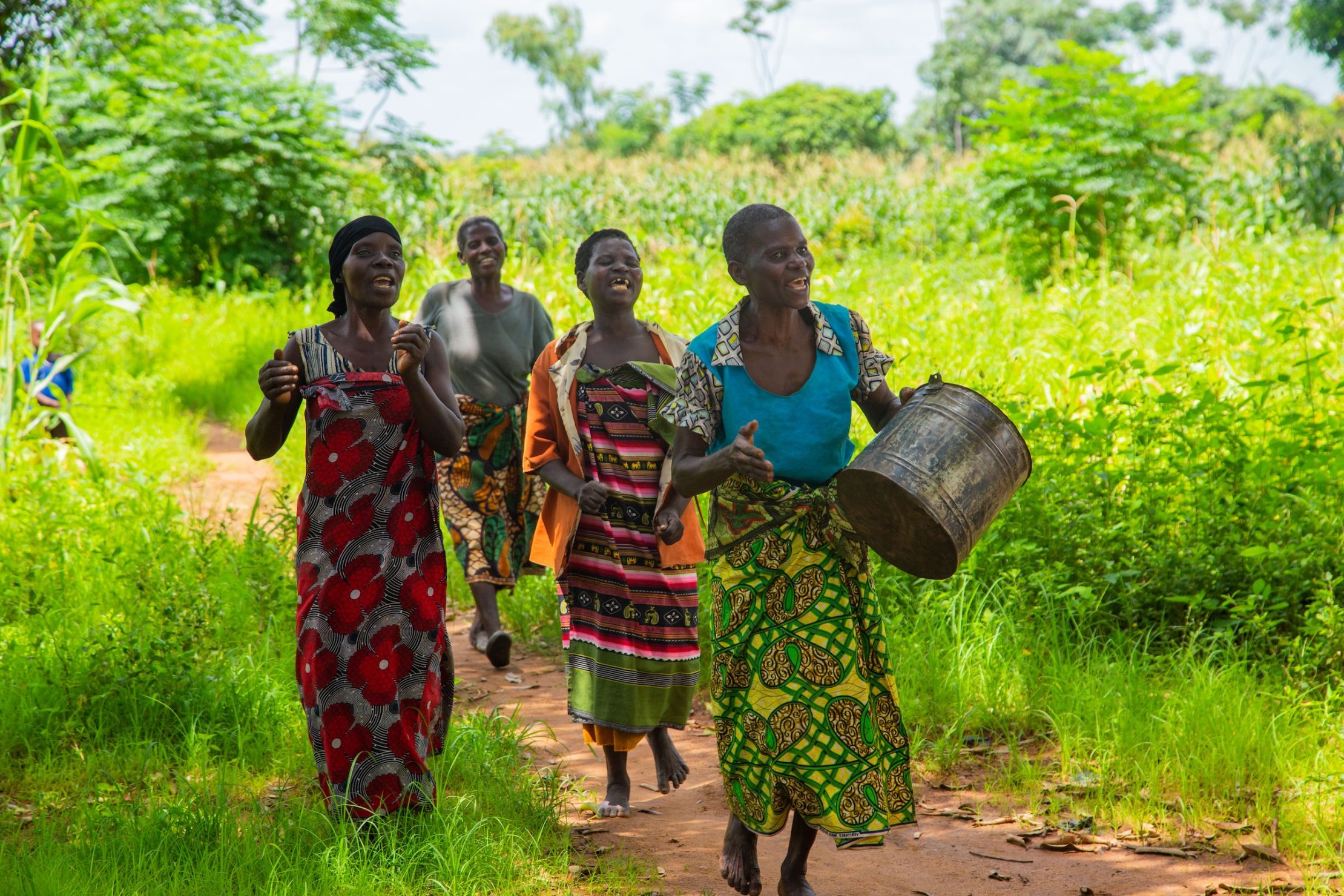
Photo: UNDP Malawi
Last year, Cyclone Freddy, the longest-lasting tropical storm ever recorded worldwide, brought torrential rainfall, devastating floods, and mudslides across southern Africa. The cyclone caused over 1,000 deaths and displaced more than half a million people in Malawi alone. It worsened already dire food insecurity levels across the country, with families struggling to meet their food needs. All of this prompted the Government of Malawi to declare a state of disaster in March 2023.
It wasn’t the first time Malawi has experienced climate hazards of such intensity. In 2015, the country witnessed its most severe floods in 50 years, affecting over 1 million people.
Malawi is one of the 46 countries making up the Least Developed Countries (LDC) group. The country is now facing some of the most severe impacts of climate change while having limited resources to address the challenges they bring. Lazarus Chakwera, President of Malawi, said that the climate crisis has the potential to trap “a nation like Malawi in perpetual poverty.”
A collapsed road in Blantyre in the aftermath of cyclone Freddy. Photo: UNDP Malawi
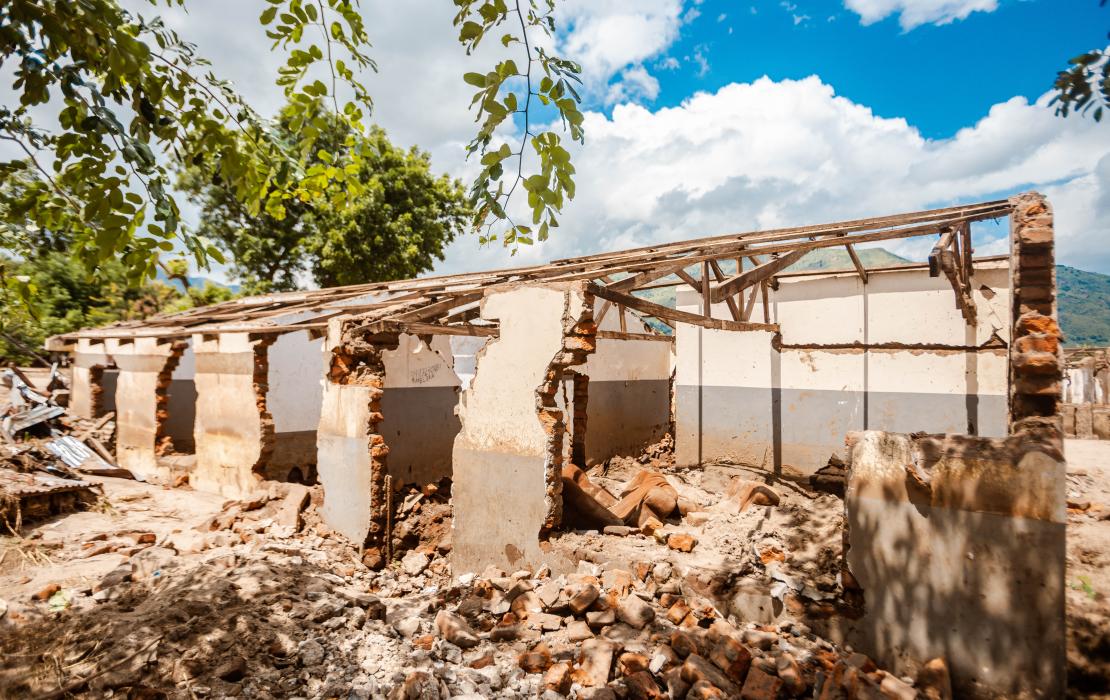
A house destroyed following Cyclone Freddy in Chikwawa District. Photo: UNDP Malawi
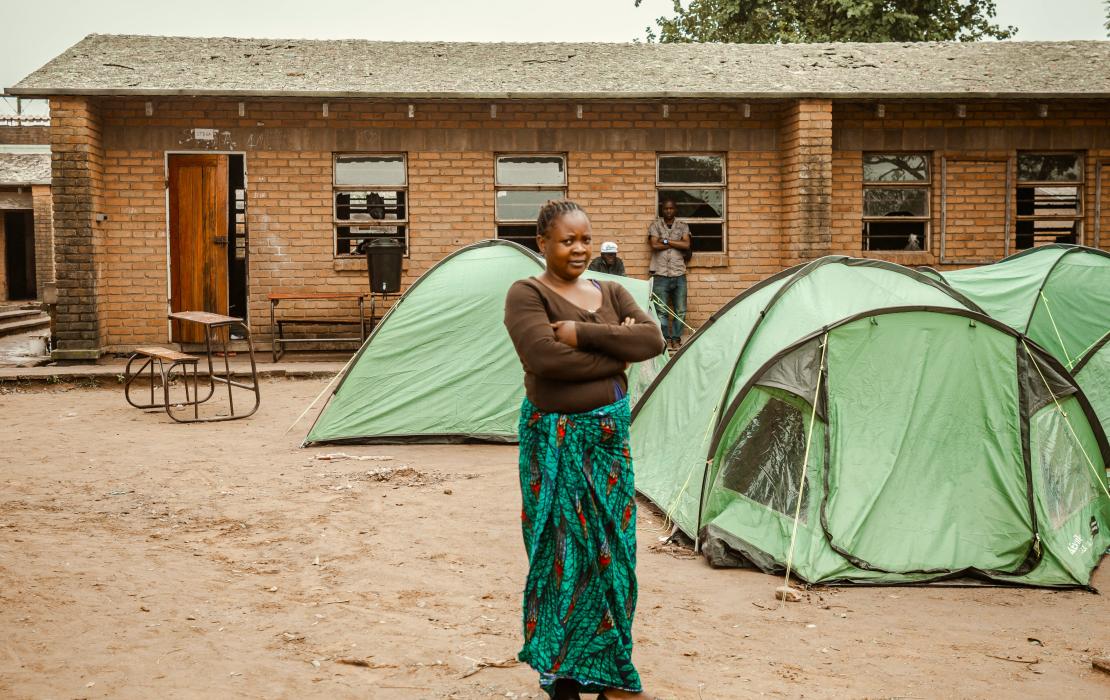
"Life at an evacuation center is just struggle." laments Modester in the aftermath of the cyclone, in Blantyre. Photo: UNDP Malawi
The frequency of climate shocks, especially in the country's 28 disaster-prone districts that cover over half of the country, is an urgent reminder that the world must invest in sustainable solutions.
To tackle climate change impacts, the government has adopted a comprehensive policy framework with its national climate pledge, also known as a National Determined Contribution (NDC). This includes a commitment to reduce greenhouse gas emissions by approximately 50 percent by 2040, and a strong focus on reducing the vulnerability of its population and ecosystems while also contributing to socio-economic development.
Under the leadership of the Ministry of Natural Resources and Climate Change and the Ministry of Energy, and with support from UNDP and the Government of Japan, Malawi’s efforts are starting to deliver tangible results.
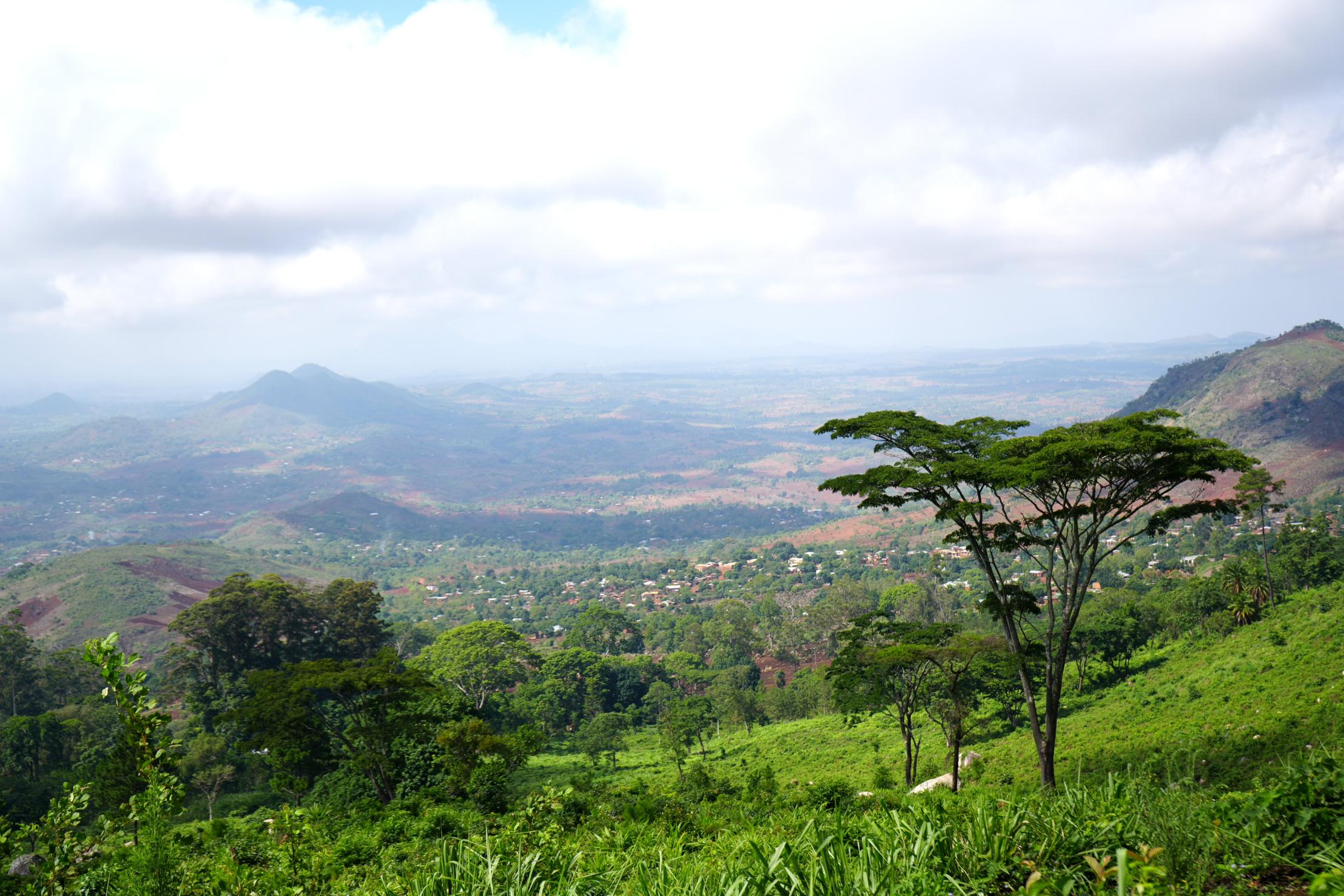
Photo: UNDP/Nataliya Vasylyeva
Solar lights powering lives
Analysis from the country’s NDC shows the increased use of renewables is a crucial factor in achieving the country's mitigation goal. In a country where only 12 percent of the population is connected to the national electricity grid, increasing access to off-grid renewable energy is paramount.
Japan’s substantial support has allowed the expansion of off-grid, small scale solar PV systems, covering a third of the US$4 million needed country-wide to generate energy from this source as per the NDC.
So far, 2,000 households have benefitted from solar energy installations across the country. In the Zomba district, Cecelia Maulana, a 36-year-old mother, lives in one of the 330 homes equipped with photovoltaic (PV) panels and a battery capable of retaining the charge for 6 to 8 hours. She sheds light on the positive impacts: “We used to rely on candles and paraffin lamps which were more expensive and dangerous. We have now cut down a lot of costs – and can now use that money for other needs around the house.”
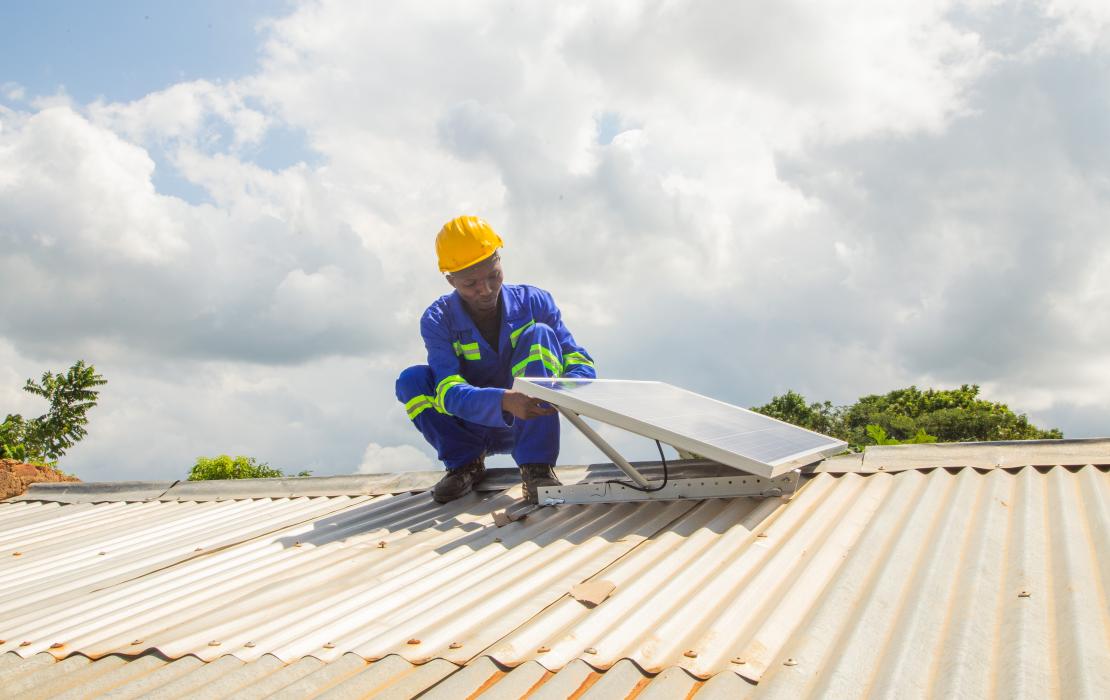
A technician installing a solar panel on a roof in Malawi. Photo: UNDP Malawi
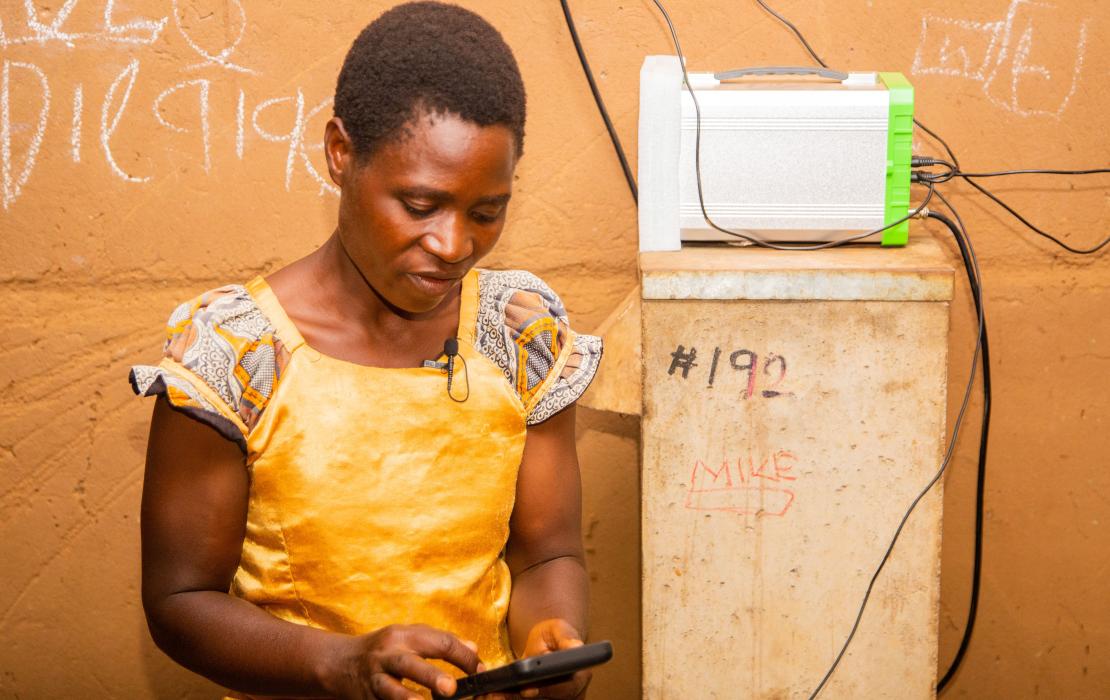
Cecelia charging her phone using the solar battery. Photo: UNDP Malawi
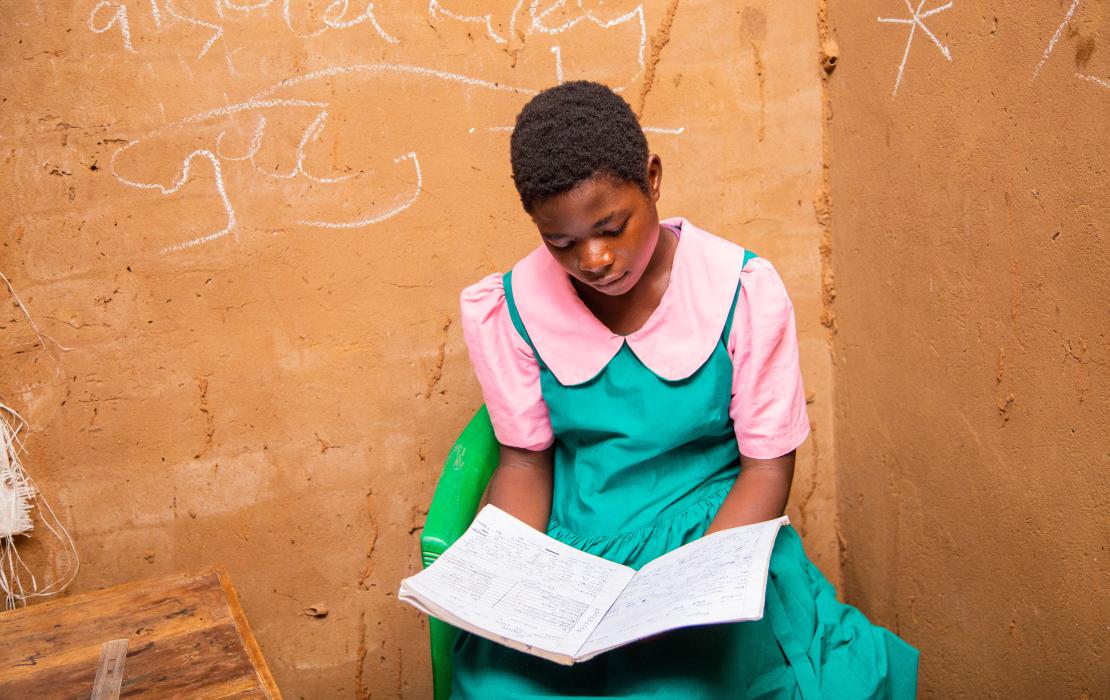
A girl completing her homework under solar-powered lights. Photo: UNDP Malawi
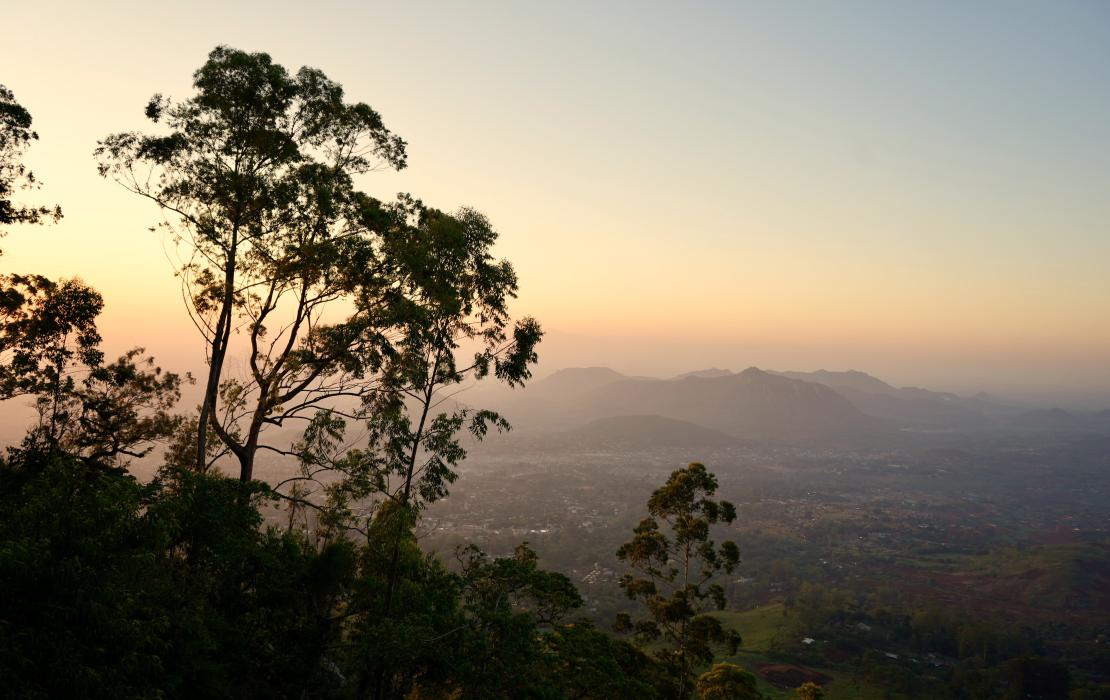
Photo: UNDP/Nataliya Vasylyeva
As solar-powered lights transform the lives of many across the district, the introduction of new clean cooking energy solutions is bringing additional benefits to both communities and the environment.
A journey to clean cooking
Biogas plants, designed to convert organic waste into clean energy, have been installed at both the Central Hospital and Mikuyu Prison to replace traditional cookstoves fueled by wood and charcoal. Switching to clean cooking technologies is a priority in Zomba where the use of charcoal accounts for 67 percent of the district's energy consumption and has had an adverse impact on forest resources and local tourism.
Each plant can harness up to 200 kg of waste per day, leading to the production of clean, cost-effective biogas ready for cooking purposes.
The collective carbon equivalent offset achieved by these systems amounts to approximately 126 tonnes annually, which is comparable to the yearly emissions of 27 cars.
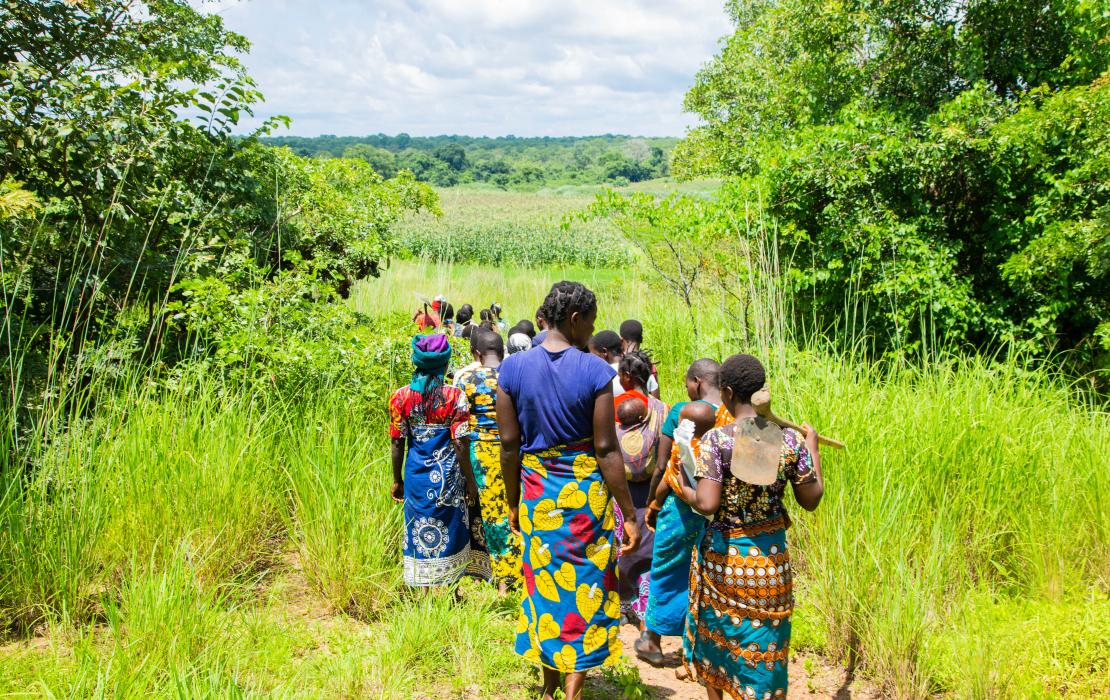
Women walking to their fields. Photo: UNDP Malawi
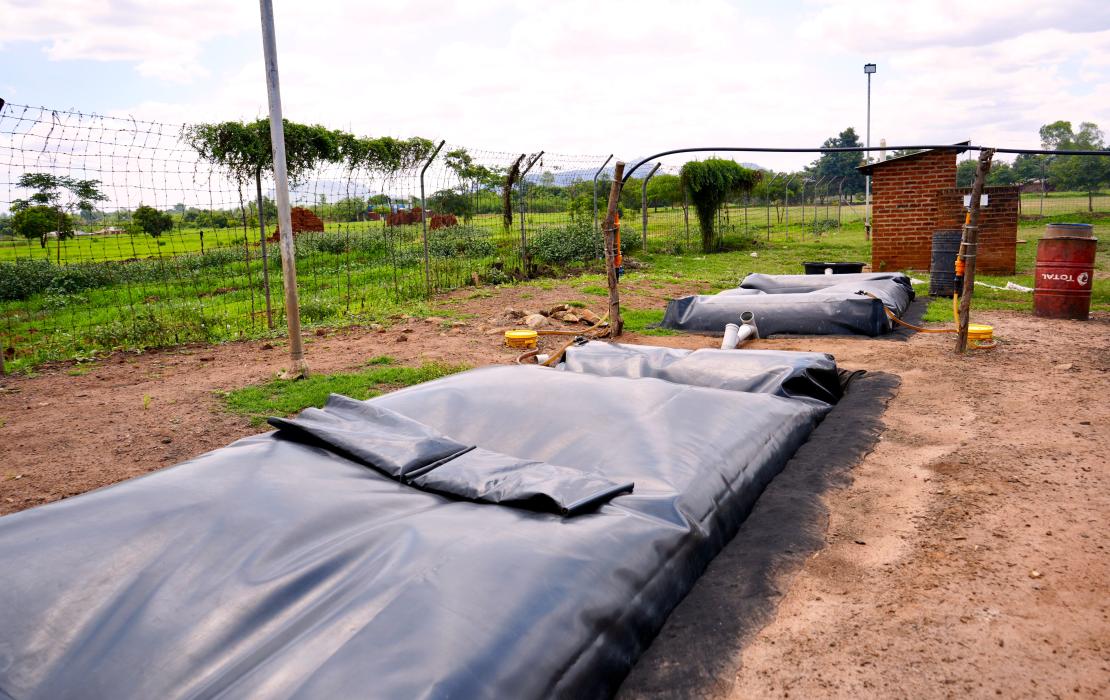
Biogas plant installed at Mikuyu Prison, in Zomba district. Photo: UNDP/Nataliya Vasylyeva
An additional benefit from the biogas plants can be found in its’ by-product from the production process, which can be used as a biofertilizer in surrounding fields. This is helping to reduce reliance on chemical fertilizers for agriculture.
Following consultations with the local communities, 2,000 households are now also using energy-efficient cookstoves after women took part in awareness raising sessions demonstrating how to use them.
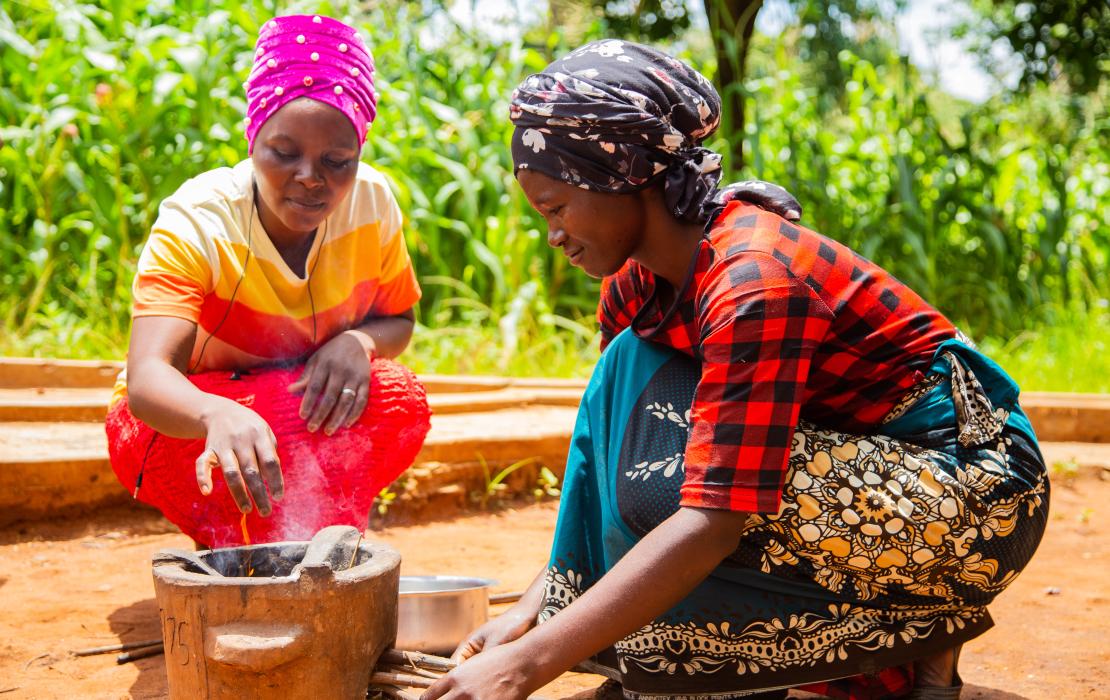
Women learning how to use the new cookstoves. Photo: UNDP Malawi
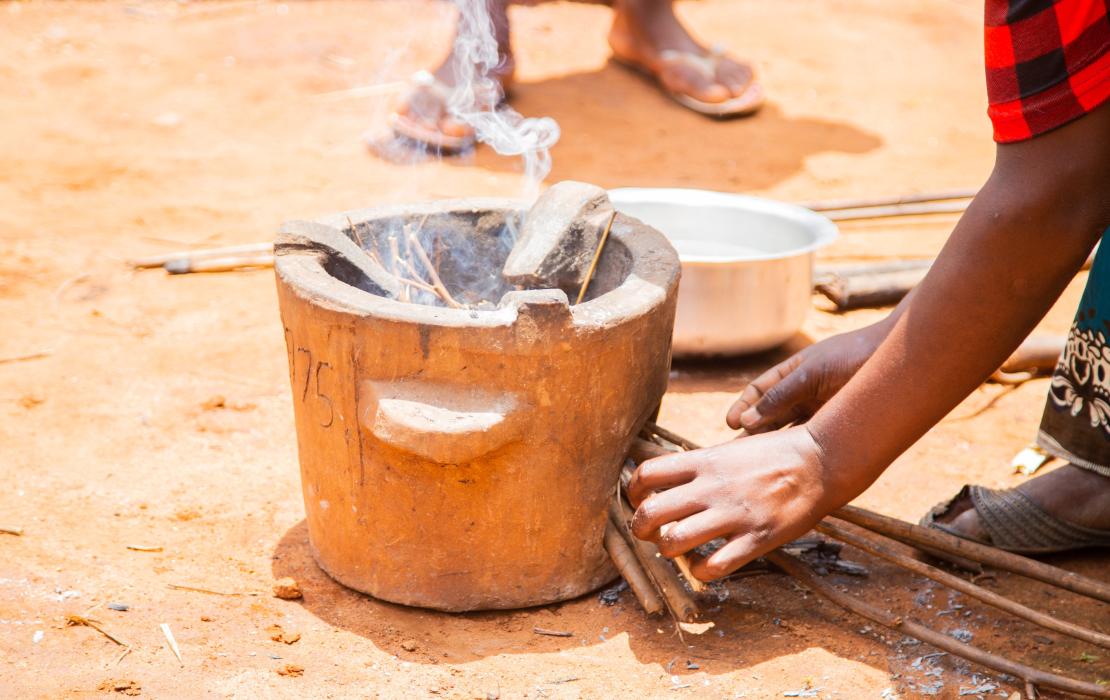
The new stoves will help reduce the demand for firewood. Photo: UNDP Malawi
Edna Chimbalanga, a 29-year-old mother from Chilunga village, used to spend long hours in search of firewood. Over the years, the distance she had to cover increased, risking her safety and leaving her with almost no time to spend with her family. She highlights the added benefits of the stoves: “The new stoves require less time to prepare, and we are also spending less money on fuel. There isn’t a lot of smoke, unlike the open fires we have been using and we don’t experience the kind of coughs we used to. It also makes me happy knowing that my family is helping save our trees by using this type of stove.”
Shifting livelihoods, changing lives
Despite these improvements, the continued reliance on the charcoal trade for livelihoods poses a significant challenge to the District. Yayileka Jackson, a 34-year-old former charcoal burner, explains: “When you have been in the charcoal business selling for too long, getting caught by authorities is sometimes seen as just part of the daily life, because that is the only way some people know to earn a living.”
UNDP, in collaboration with local partners, facilitated the formation of Village Savings and Loan Associations (VSLA) to empower community members in developing alternative livelihoods that also support local development. These schemes enable communities to pool local savings and engage in mutual borrowing. Such schemes can help bring transformative change to communities, and especially women, who may lack access to or use of formal financial services.
Yayileka enrolled in a VSLA, which allowed him to stop trading charcoal. “Through Village Savings and Loans, my family was able to invest and open a grocery shop which helped increase our earnings. My community and I are now making a living in a way that doesn’t hurt the environment. We are even able to afford sending our son to get a quality education,” he says.
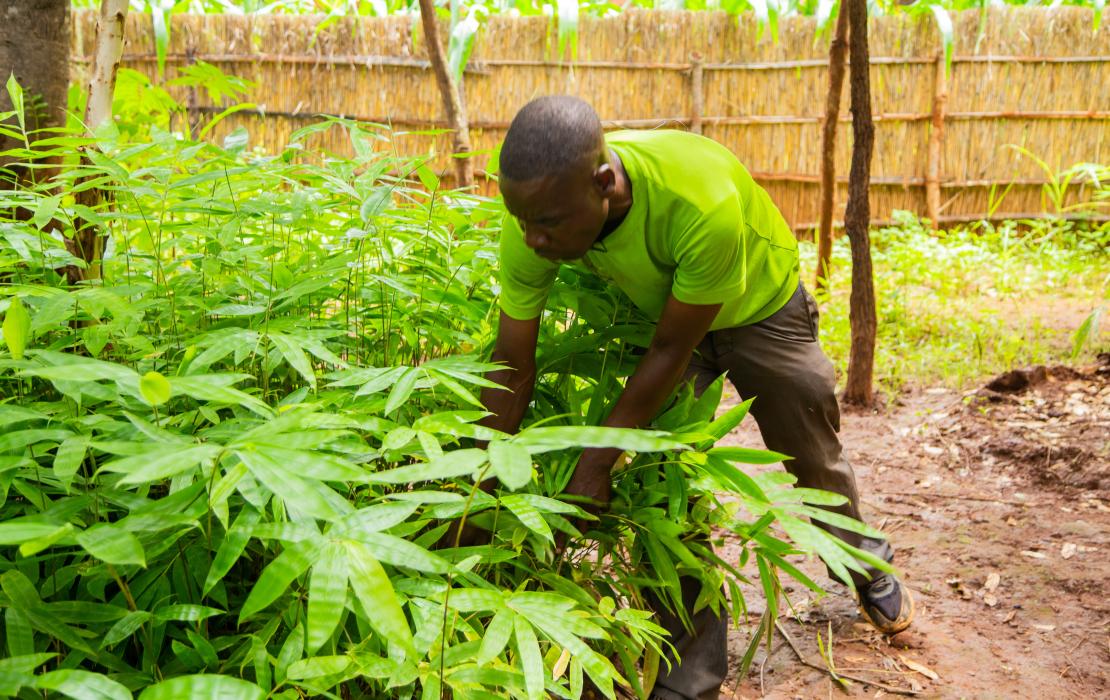
Yayileka taking care of plants in a tree nursery set up by the local community. Photo: UNDP Malawi
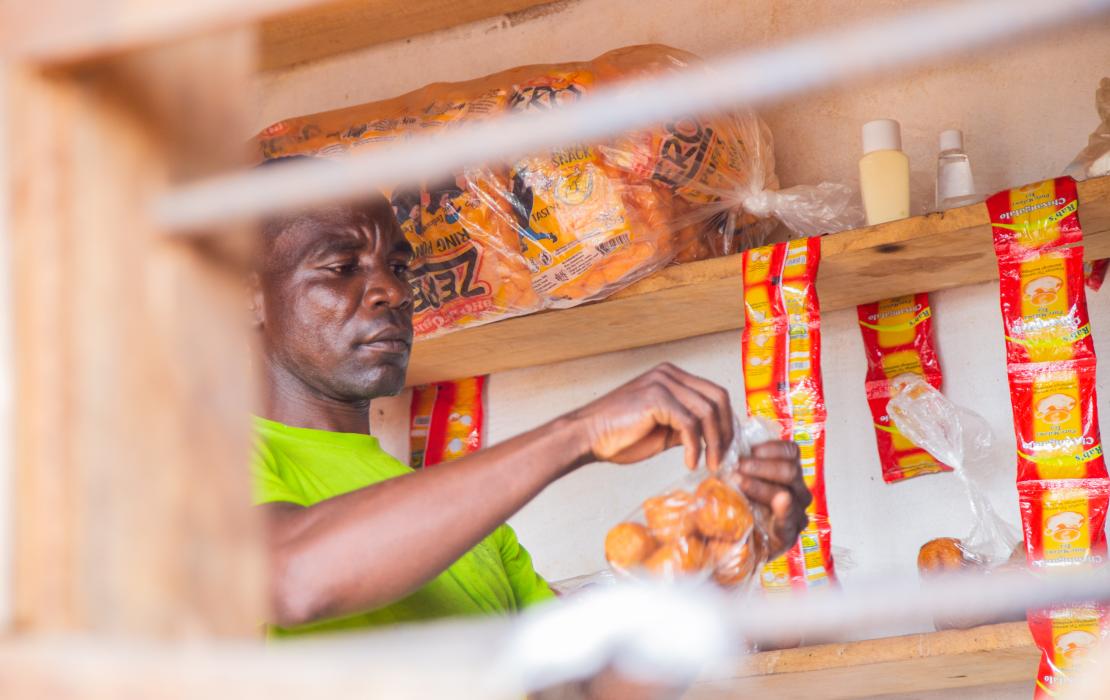
Yayileka working at the shop that he recently opened with his family. Photo: UNDP Malawi
Savings and loan schemes are only one aspect of the focus on promoting collective action for resilient livelihoods. UNDP, alongside local partners, has also introduced beekeeping as a way to help locals generate income collectively.
To facilitate this, residents of Mirama have been provided with 90 beehives to engage in honey production and processing, along with the manufacturing of products such as candles made from beeswax. Local communities now have new income sources while also supporting the regeneration of plants and crops in the area, thanks to the pollination bees facilitate. The idea is that this project can serve as a replicable model for other communities in the future.
Acknowledging the importance of forest resources, some members are also engaging in reafforestation efforts, showcasing strong leadership throughout the entire process, including growing, planting, nurturing, and monitoring tree growth progress. At the national level, 375,000 tree seedlings have been planted, which represents a significant step to safeguard protected forests and advance climate-resilient farming practices, particularly through agroforestry.
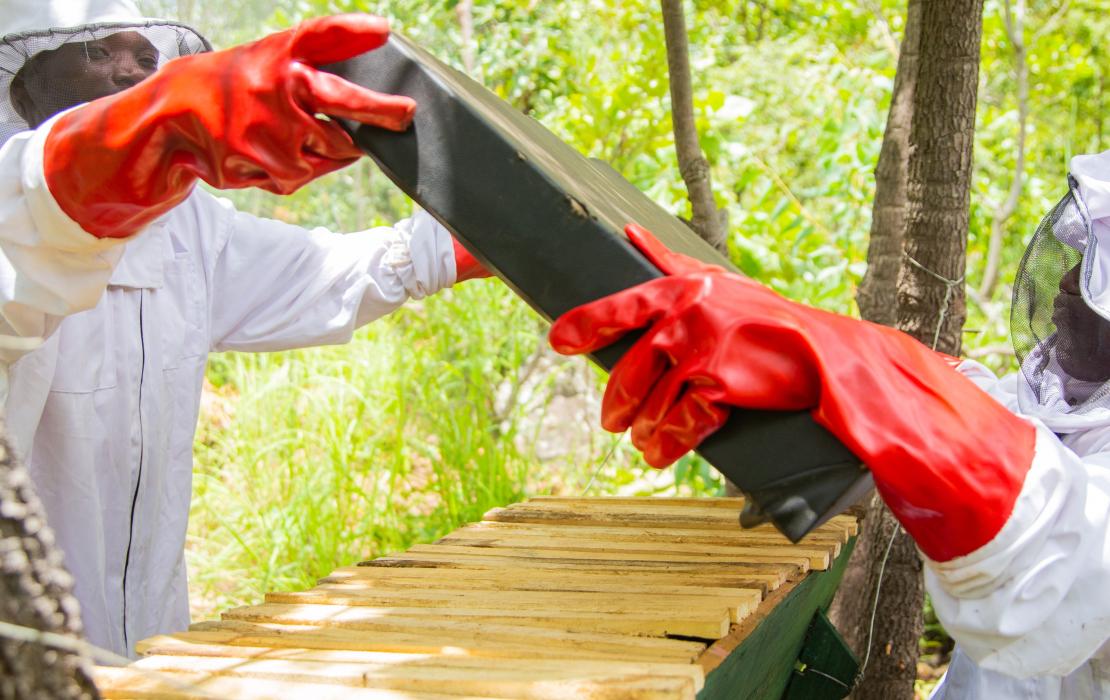
Community members installing a beehive. Photo: UNDP Malawi
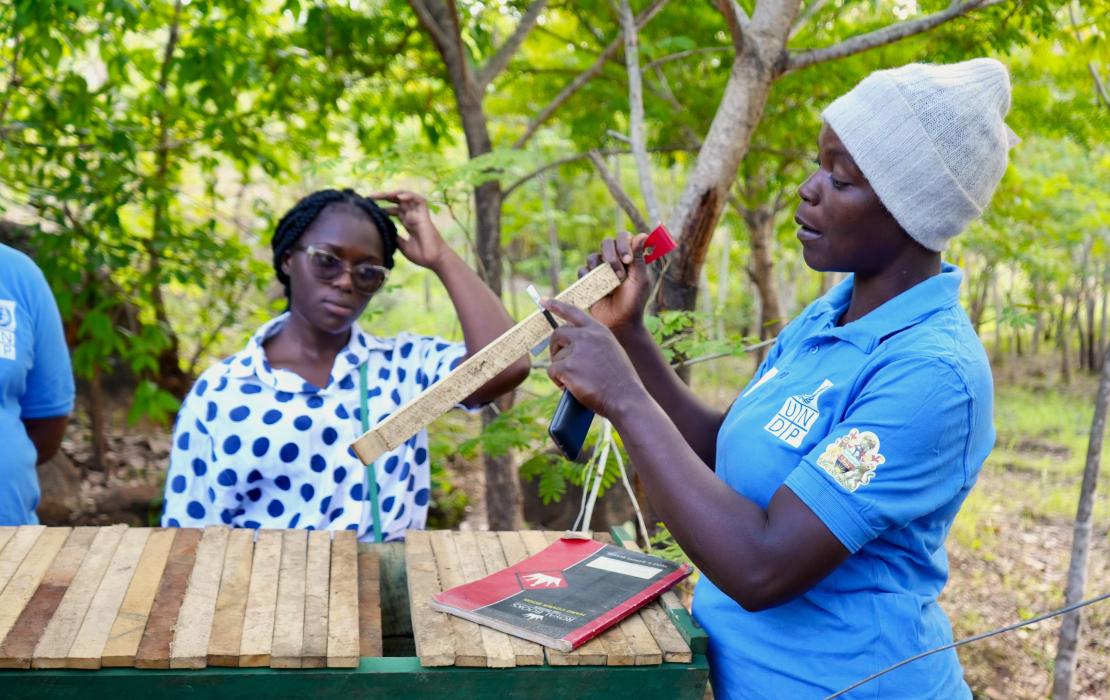
Edna guiding community members on techniques to attract bees to the new beehives. Photo: UNDP Malawi
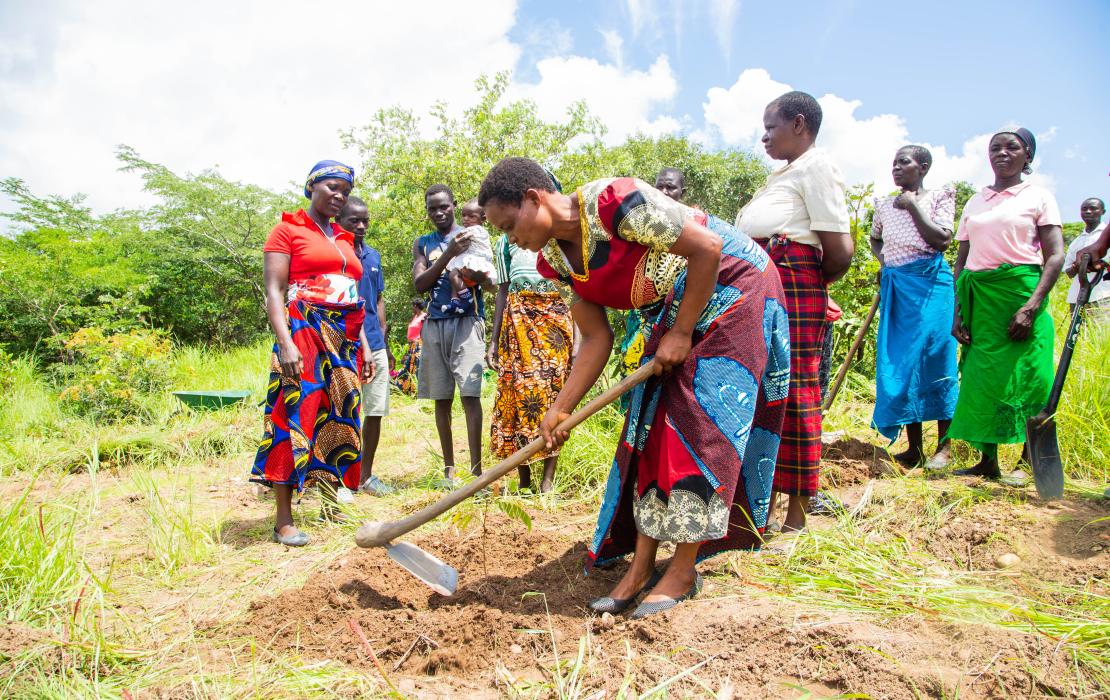
A group of women planting a tree. Photo: UNDP Malawi
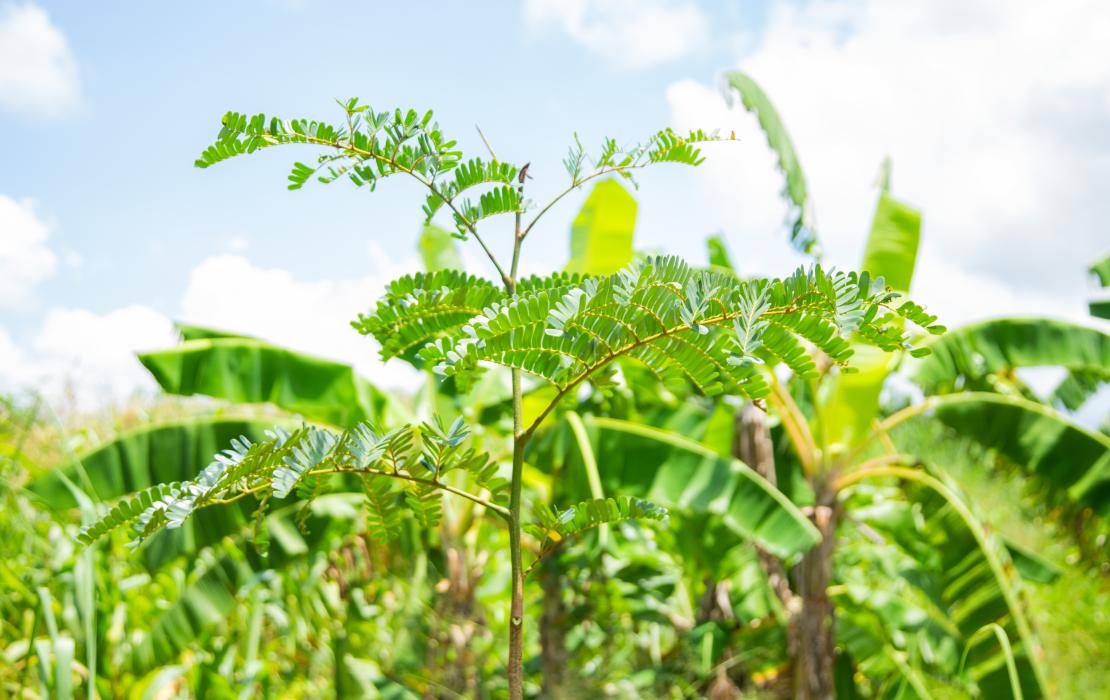
Photo: UNDP Malawi
Water for life
The need to enhance farmers' resilience has never been more apparent. The recent rainfall season was unpredictable, due to the current El Niño phenomenon affecting Malawi. As of December 2023, many parts of Malawi had not received adequate rainfall to initiate planting.
To strengthen adaptive capacity to unpredictable weather, UNDP deployed solar-powered irrigation schemes and water supply pumps to communities. Importantly, this was accompanied by trainings in innovative agricultural production methods to create immediate opportunities that help address food insecurity.
With the new irrigation system, which pumps underground water into tanks for farmers to use during insufficient rainfall, farmers can now cultivate two to three crops annually – compared to only one crop when they were reliant on rainfall only. With improved water availability, farmers are diversifying their crops beyond traditional maize and exploring more profitable options. They are also now assuming responsibility for the operation and management of the installations to ensure its benefits last long into the future.
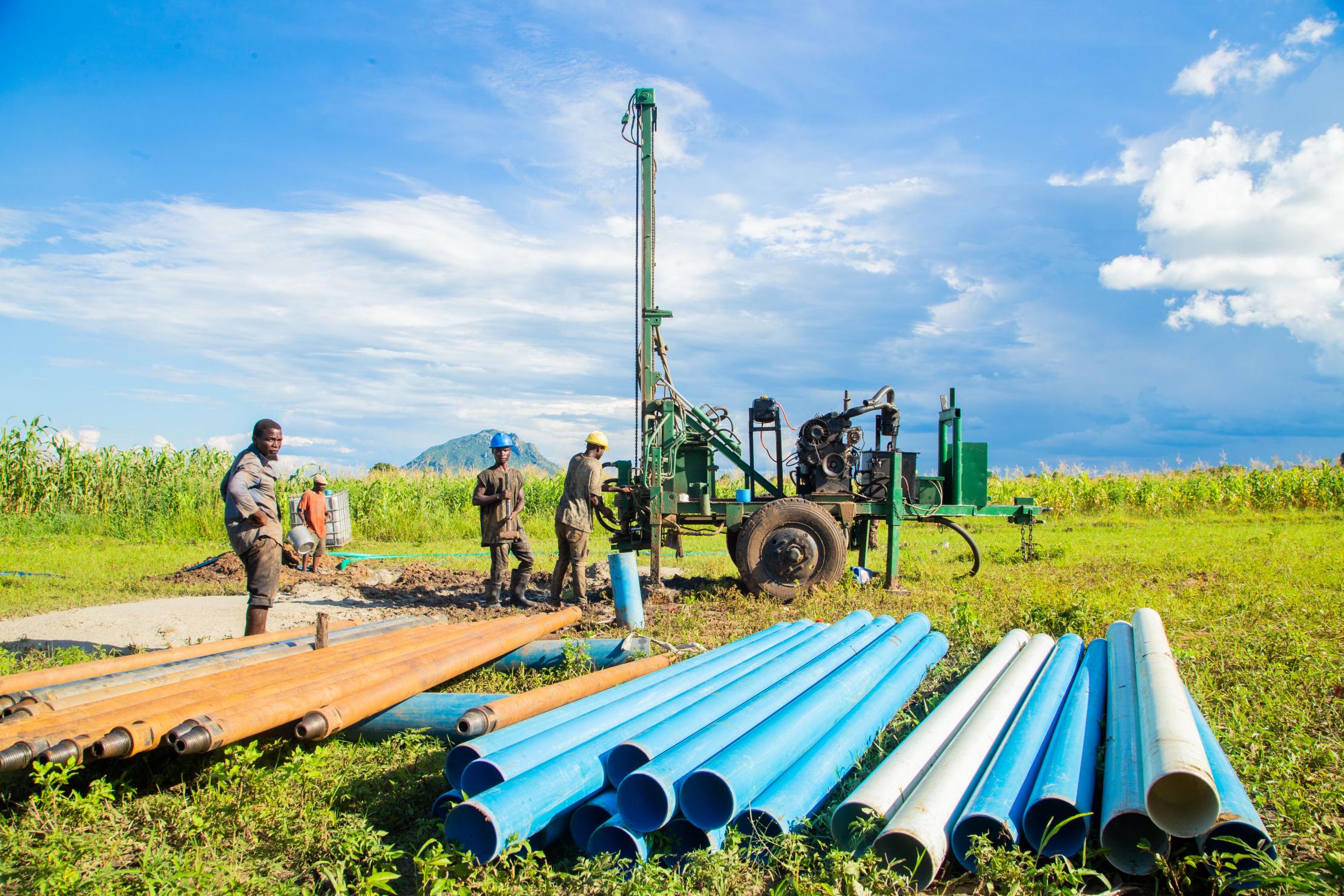
The new irrigation system being installed. Photo: UNDP Malawi
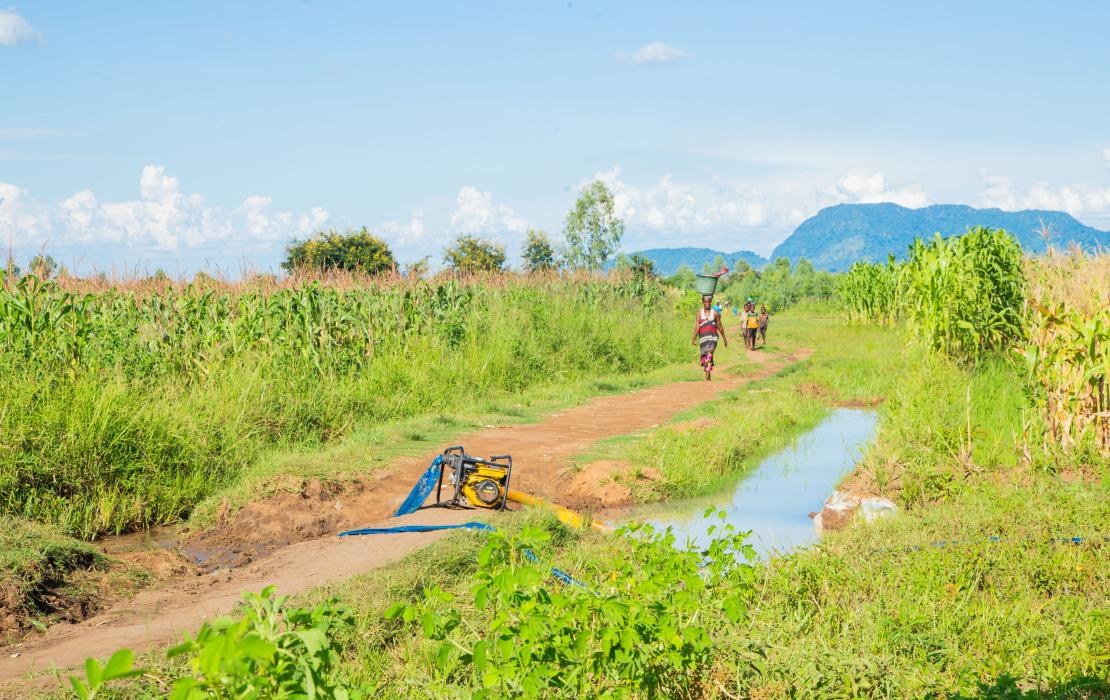
Water flowing from the tanks to the fields through pipes. Photo: UNDP Malawi
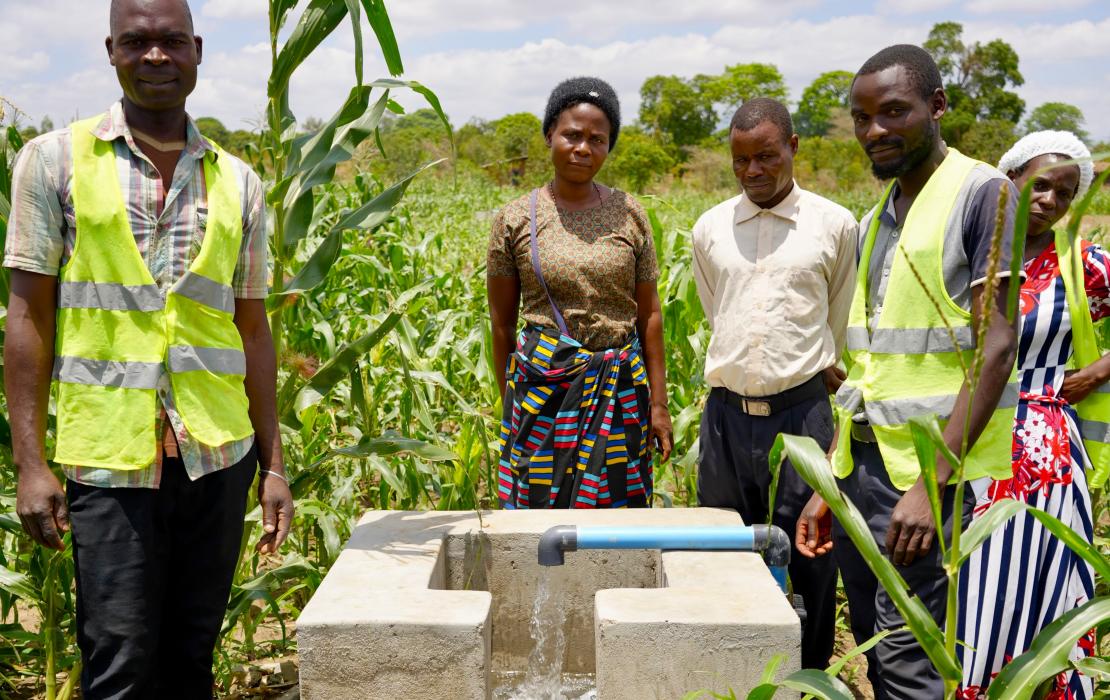
Farmers showing how they are using the irrigation installation. Photo: UNDP/Nataliya Vasylyeva
As Malawi is urging for swift climate action to align with the Paris Agreement and global climate goals, its commitment through its NDC to transform these goals into reality is commendable. Communities across the country are stepping up and taking the lead, setting the course for climate-resilient development and providing a model for other nations to follow.
Despite the long road ahead, the rest of the world has much to learn from Malawi’s efforts and leadership in climate action.